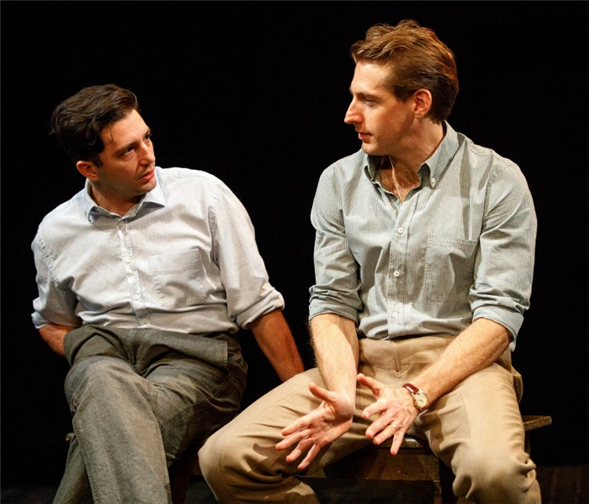It’s a Play, Not a History Lesson
Home > TDF Stages > It’s a Play, Not a History Lesson

Tony-winning dramatist Richard Nelson reflects on the early days of Shakespeare in the Park
—
A beloved summer tradition for theatregoers, the Public Theater’s free, star-studded Shakespeare in the Park may seem as old as Central Park itself. But in the late 1950s, the New York Shakespeare Festival (as it was originally known) was still a nascent and controversial company, a group of ambitious young theatre-makers led by a then television stage manager named Joseph Papp.
The success of Shakespeare in the Park — the earliest programming of what eventually evolved into the Public Theater — is renowned, and the late Mr. Papp is considered a theatre icon. But Richard Nelson’s world-premiere play Illyria focuses on the institution’s lesser-known formative days, as Papp, his wife Peggy, director Stuart Vaughan, publicist Merle Debuskey, and others grappled with city bureaucracy, the House Un-American Activities Committee, and internal arguments while making art. Fittingly, the show is now running at the Public Theater itself, the former Astor Library on Lafayette Street, which was reinvented as a cultural destination 50 years ago.
Nelson is celebrated for his domestic play cycles about the Apple Family and the Gabriels, which also ran at the Public. Like those shows, most of Illyria (which is named after the fantastical setting of Twelfth Night) revolves around a group gathering with food: Papp’s 37th birthday in 1958. But though Nelson has invented much of the dialog, he did extensive research before sitting down to write the play. “I find the exciting thing about doing a history play is that the situations, the facts, the things you come across are often things you could never as a writer imagine yourself,” he explains. “So you’re constantly learning and exploring and seeing things differently. You’re not trying to make things into what you want them to be, but you’re trying to figure out and order things and make sense of the facts you have.”
Although Nelson has known some of the people he turned into Illyria characters for many years, he didn’t interview them in preparation for the play, relying instead on existing accounts of bygone events. “I felt I needed to find my own way,” he says. “And I didn’t want to have these characters filtered from their older selves. I wanted to discover them as young people who would be surprising I think even to their older selves. The thing I was interested in doing in this play was to write about young people trying to make art in New York City. That is a theme and a story which I think is very alive today.”
While the characters in Illyria frequently mention bits and pieces of theatrical lore, Nelson didn’t burden them with exposition like so many other history-based works. “We should be watching human beings and understanding what they are going through,” says the playwright, who also directed the production. “Not, ‘Who’s that? What’s that piece of information?’ When you have actors gossiping about an actor up in Stratford, you don’t have to know who he was. If you know, there’s an added fun because you can picture him. But you’re watching people gossip for a moment about something when you totally get what they’re doing. The goal is not to do a history lesson; the goal is to put human beings on stage.”
That helped alleviate some of the stress actor John Magaro felt about portraying a man as legendary as Papp. “Richard wanted to tell a story that functioned in its own space, in its own time,” Magaro says. “He discouraged research into the actual people.” Yet accounts of Papp found their way to Magaro anyway. “I feel very fortunate that people who worked with him that I cross paths with a lot are still in the city,” he says. “All of them were very excited to tell me their Joe Papp stories. I heard a lot of great ones — how he operated, how he ran the theatre. Good stories and bad stories. Those were extremely helpful. It really painted a picture of who Joe was.”
Though Nelson did take some liberties, especially with the timeline, that makes sense since he’s adamant that Illyria not be viewed as some dusty document of the past. “Here’s a play in which some people are still alive, and we’re doing it in the theatre that was built by those people when they were younger,” he says. “You have an audience coming who already have a connection to and perhaps even an investment in these people. What a rich way, I think, to have theatre become visceral and immediate and present.”
—
TDF MEMBERS: At press time, discount tickets were available for Illyria. Go here to browse our current offers.
Howard Sherman is an arts administrator, writer, and advocate. Follow him at @hesherman. Follow TDF at @TDFNYC.
Top image: John Magaro and Fran Kranz in Illyria. Photos by Joan Marcus.
